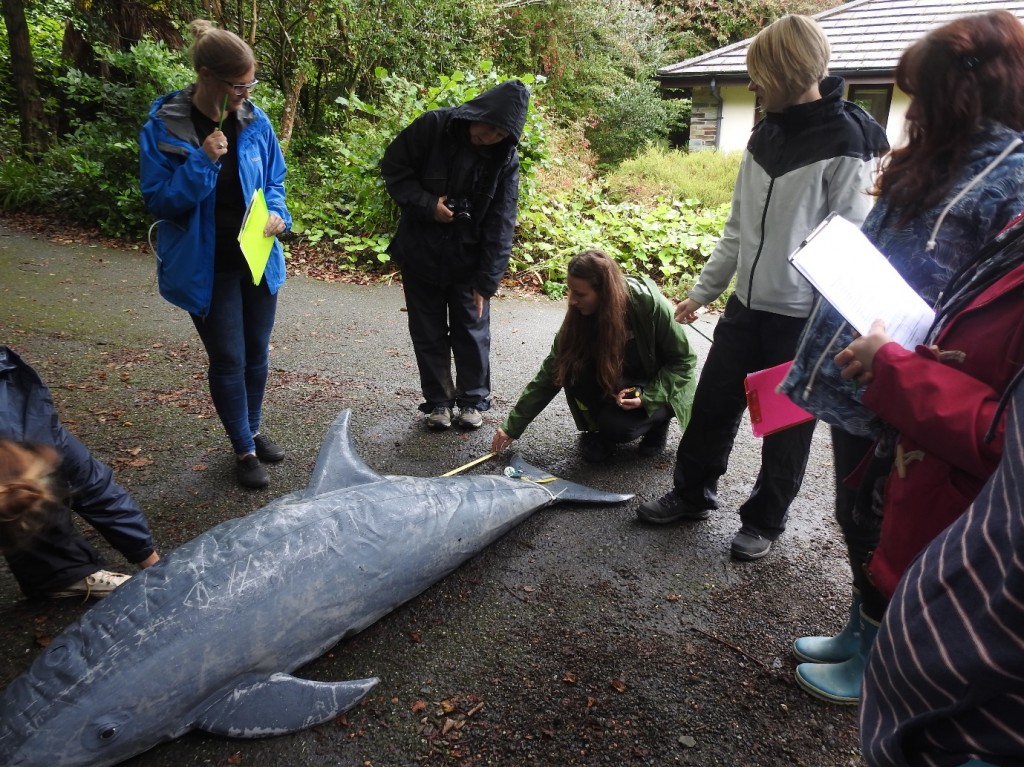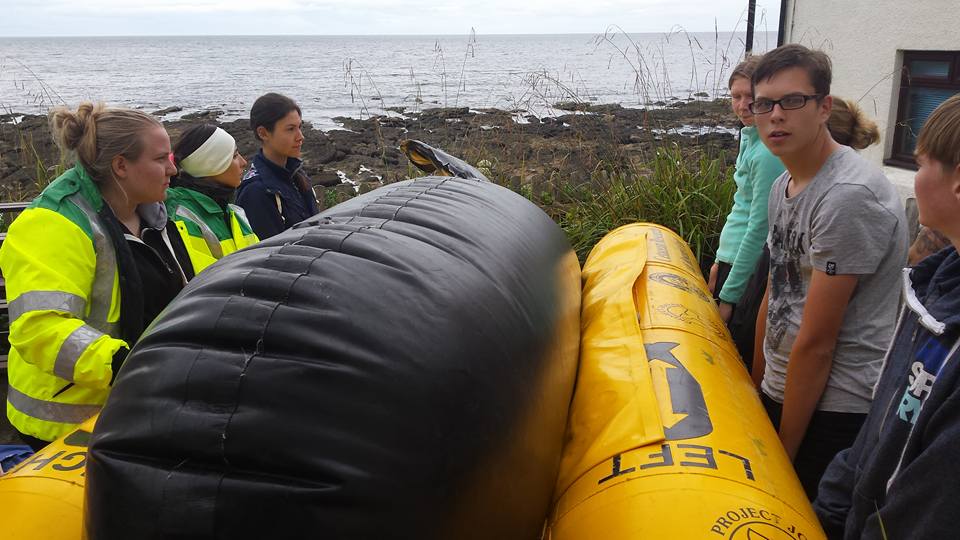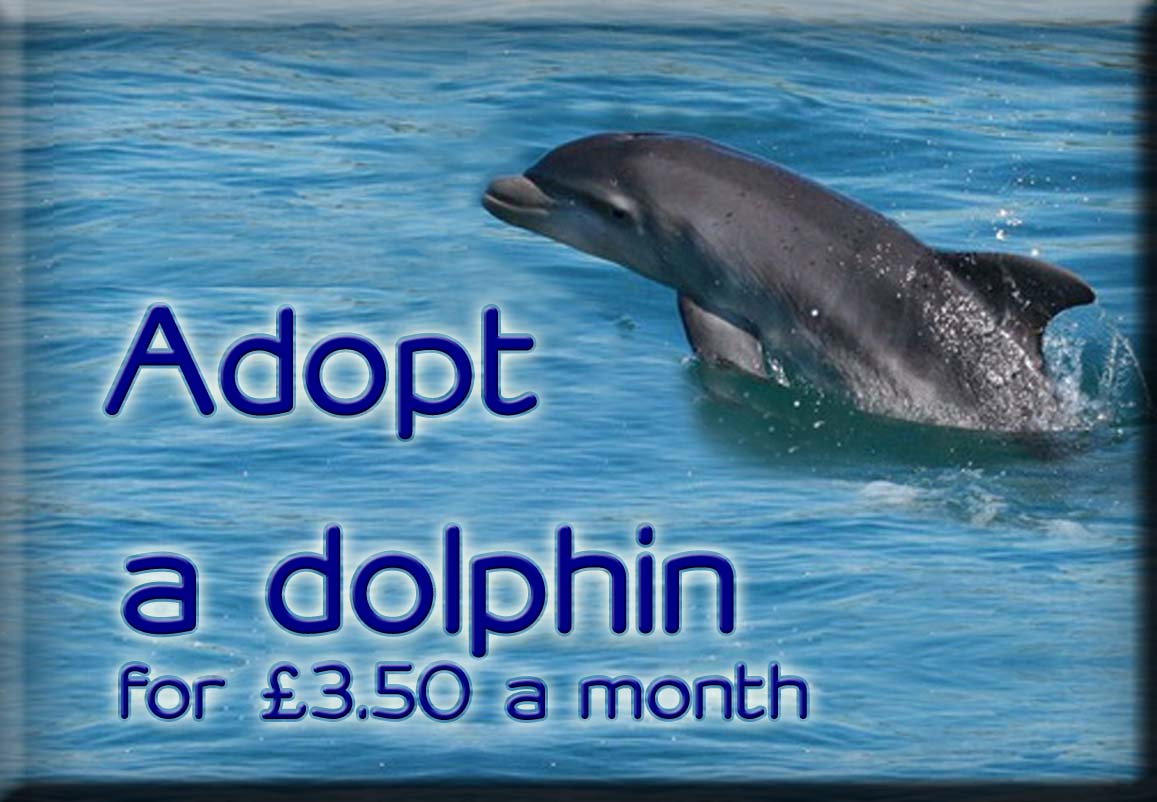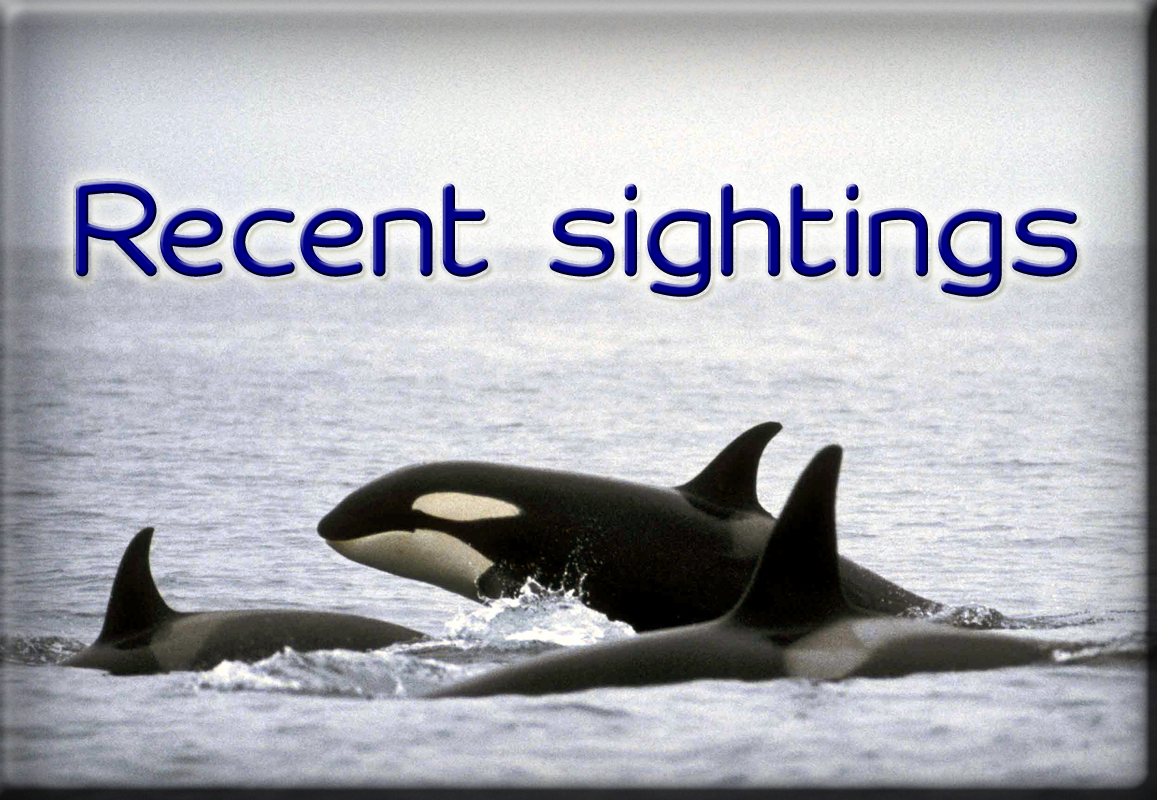As winter approaches, and storms like Brian take hold of the British coastline. A new team prepare to take action around the UK.
In Cornwall there is the Marine Strandings Network, a team of over 100 volunteers, who are ready to brave the weather and record all reported strandings of marine organisms on the Cornish coast, for the Cornwall Wildlife Trust. They mostly focus on stranded dolphins, whales and porpoises, but collect data on everything from Zulu fish to basking sharks, with their first recording going all the way back to 1308! To find out more information about Cornwall’s marine stranding network visit their website here: http://www.cornwallwildlifetrust.org.uk/strandings.
A total of 205 animals stranded in Cornwall in 2016, a much higher level than 2015, where only 10 were recorded. Being able to identify these changes in stranding levels is important, as not only does it allow for direct investigation on the strandings to take place, but also highlights the importance of what is happening in our seas.
Data is shared nationally to the Cetacean Strandings Investigation Programme, to better understand the ecology of cetaceans whales in the UK waters, so management and protection can be worked towards. UK Cetacean Strandings Investigation Programme (CSIP) works around the rest of the UK, CSIP have been running from the 1990’s working to coordinate the investigation of all dolphin, whale, and porpoise strandings as well as marine turtles and basking sharks, around the UK.
CSIP works tirelessly to investigate the causes of strandings, completed postmortems on as many specimens as possible. This information has led to an increase in what we know about the species studied, as well as evidence in the physical damage of by-catch and physical traumas, such as boat strikes and noise pollution. For more information about CSIPs work and how to report strandings, visit their website here: http://ukstrandings.org/.
Whereas The Marine Strandings Network and CSIP work with dead strandings, there is another team working with live strandings.
British Divers Marine Life Rescue (BDMLR), a volunteer network of trained marine mammal medics, which respond to call for help. Their volunteers are on all 24 hours a day all year, trained to deal with all kinds of strandings and rescues, from mass whale strandings, such as the sperm whales strandings last year (http://www.seawatchfoundation.org.uk/largest-sperm-whale-stranding-ever-recorded-in-the-north-sea/), to rescuing seal pups for rehabilitation and release. BDMLR have a wide variety of equipment at their disposal from whale disentanglement kits to dolphin pontoons, they are prepared to try and rescue any type of marine animal in trouble. For more information, and to find out to how to get involved visit their website here: http://www.bdmlr.org.uk/index.php.
All of the work completed by these groups is only possibly by the support of us though, from reporting the strandings, to the rescue, or the subsequent data collection should a rescue not be successful, volunteers are the backbones of these groups. Why not join in and help?
To find out what to do should you find a stranding, visit our page on the subject: http://www.seawatchfoundation.org.uk/if-you-find-a-stranding/.
Written by Lauren Fidler, National Whale and Dolphin Watch Assistant.


























